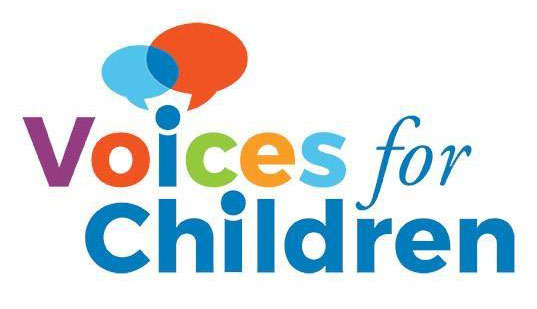

Interview & Evaluation Services
Voices for Children (formerly Weiss Child Center) offers a welcoming and secure space for children who have experienced harm to share their experiences. A single certified, trained professional is present to listen with care, conduct evaluations, and ask all necessary questions. Children and their supportive family members meet with our Family Support Specialist and Forensic Interviewer to receive answers to any questions they may have. The Interviewer works to build trust with the child, ensuring they feel secure and understood. Behind the scenes, our team collaborates with Law Enforcement and Child Protection Services to develop a plan that prioritizes the safety and well-being of the child and their family. The Family Support Specialist assists the family in understanding legal processes, identifying and addressing their needs, connecting with local resources and therapy services, and offering continued guidance. Our comfortable, home-like setting allows specially trained medical staff to provide onsite health evaluations, helping reduce stress and promote a sense of calm for the child.
Multidisciplinary Team
Voices for Children Advocacy Center serves as the central point for the Multidisciplinary Team (MDT), a collaborative group of skilled professionals representing various agencies, including law enforcement, social services, legal professionals, mental health providers, medical experts, and family support specialists. The MDT works together on the coordinated response, care, and case management related to situations involving harm or mistreatment of children.
Family Support Services
At Voices for Children, family support services offer direct assistance to children who have experienced harm and their supportive caregivers. The goal is to help both the child and caregiver navigate this challenging time with understanding and stability. Family support specialists provide education on child safety and well-being, and help connect families to additional resources they may need.
Support is extended by all staff to both the caregiver and the child. The first person the family meets is a Voices for Children team member, who speaks with the caregiver about what to expect during the forensic interview, what follows afterward, assists with paperwork, and explains available financial assistance programs.
Following the interview, the multidisciplinary team (MDT) meets with caregivers to go over next steps and answer any questions. Our Family Support Specialists also help families access counseling services and provide guidance throughout legal proceedings-this includes helping the child understand what to expect in court and offering support if they are required to participate.
My Child Has an Interview - What Should I Expect?
Voices for Children is thoughtfully designed to be a welcoming, supportive, and child-centered environment. It is a safe and comfortable space for both children and their caregivers. When you arrive for your scheduled visit, one of the first people you may meet is a member of the Voices for Children team or a trained volunteer. You and your child will be offered light refreshments and guided to our cozy living room area, which includes activities to help children feel at ease while waiting for the interview to begin.
We have plenty of space available if you need to bring siblings or additional family members with you. Please note that individuals involved in causing harm are not permitted in the building or on the property.
Before your child's interview, you'll have the opportunity to speak with members of the Voices for Children team, as well as representatives from law enforcement and child protection services. You're welcome to ask any questions you may have during this time. We may also ask if you're comfortable with dogs and whether you would like Daphne, our support dog, to be present as part of the interview experience.
The Forensic Interview
When it's time for your child's interview, the interviewer will be introduced. After introductions, your child will go to the interview room with the interviewer. Please note that only your child and the interviewer are allowed in the interview room during this time. This is an important legal measure.
The interview is conducted as a casual, child-friendly conversation. A highly trained and experienced interviewer will engage with your child in a way that is tailored to their individual needs. During the interview, the team involved in the case will observe from a separate room using video equipment. The recording made during the interview will be used in the investigation but does not automatically replace the need for testimony in court. Cell phones are not allowed in the interview room. If your child has a cell phone, please ensure they leave it either at home or with you during the interview.
Once the interview is complete, the team will meet with you to discuss the next steps in the investigation. You are encouraged to ask questions about the investigation and how you can best support your child. In accordance with Michigan law, you will not be allowed to view the video of the interview. Only the team working on the case will have access to the video.
The Health Evaluation
The investigation team may recommend a specialized health evaluation. If they do not, you can request that your child receive one or take your child to your family doctor. Even if your child has already been seen by another medical professional, it is common for the team to recommend an additional evaluation.
Health evaluations are conducted by a doctor or specially trained nurse who is experienced in working with children who have experienced harm. A health evaluation is an important step in the process as it helps ensure your child's physical well-being moving forward.
The medical staff takes great care to ensure the evaluation is as comfortable and stress-free as possible for your child. The warm and supportive environment at Voices for Children helps children feel at ease and reduces any anxiety associated with the procedure. It also allows your child to be interviewed and evaluated in the same familiar space.
Lab tests will be performed to check for any possible infections. Aside from the usual slight discomfort of a blood test, the process is not painful for your child. Some children who have experienced harm may have normal results from the evaluation. A negative result does not automatically mean that harm did not occur.
The doctors are available to answer any questions you may have about the evaluation and its findings. Feel free to discuss any concerns you have with them openly.
How you can help your child? (Before the Interview)
Talking To Your Child
Avoid sharing your feelings about the situation or the investigation with your child. Children often misinterpret an adult's emotions and may feel responsible or withdraw. This can hinder their healing process. Instead, consider talking to a trusted family member, friend, or counselor for support.
Some suggestions for speaking with your child:
- Do not pressure your child for details about what was said during the interview. Let your child take the lead in sharing their experience.
- Stay calm when talking with your child.
- Reassure your child that you believe and support them.
- Let your child know that you will ensure their safety.
- Spend quality time with your child, making sure they know they can share any thoughts or feelings with you at any time.
- Let your child know you are proud of them.
- Avoid making promises about specific outcomes from the legal process.
- Maintain consistency in daily routines and expectations. This helps your child feel more secure and provides a sense of normalcy.
How You Can Help:
Support Your Child
The most important way to assist the investigation is by supporting your child. Offering support may be challenging, especially if you were close to the individual involved. Check in with your child about how they feel and continue to show love and care. Have conversations with all the children in your care about personal safety and appropriate boundaries. Encourage your child to engage in activities with others to maintain a sense of normalcy.
Fully Cooperate With Investigators
It's understandable to feel that your privacy is being challenged during the investigation. You might not fully understand why investigators need so many details about your life. They ask these personal questions because the information can aid the investigation. Investigations can be weakened if important details are not shared early on, so it is crucial to cooperate fully. Provide all the facts you know, but do not speculate or guess. The investigators understand that this process can be difficult, and they appreciate your collaboration.
Do Not Coach Your Child
It may seem like rehearsing what your child should say before the interview or legal proceedings would help them, but this is not advisable. The prosecutor's office will help prepare your child for court if necessary. Voices for Children's Child & Family Therapists are also available to help your child understand what to expect in a court setting. Additionally, the Prosecuting Attorneys' Office has a Special Victims Unit with extensive experience in handling cases involving child safety, ensuring that children, youth, and families are well-supported throughout the legal process.
Keep In Touch
Notify the investigators as soon as possible if there are any changes in your life, such as moving, any contact or attempts by the individual involved with your family, or any new information that could impact the investigation.
